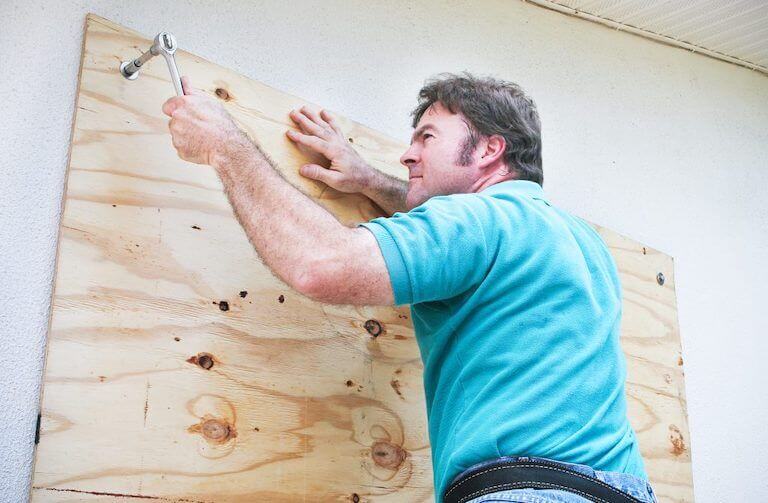The 2019 hurricane season is predicted to have a slightly above average season with 12-14 storms, according to the AccuWeather forecast. Business owners in areas affected by hurricanes should take normal precautions, but to many, the level of “normal precautions” varies widely.
Hurricane season is designated as June 1 through November 30th. Within these months, strong storms that could potentially develop into major hurricanes occur due to warmer weather and winds. This year, of the 12-14 storms predicted, five to seven of those systems could develop into named hurricanes, with two to four strengthening into major hurricanes, a category 3–5.
Preventing a hurricane is out of your control but protecting your business isn’t. The best way to prepare for the 2019 hurricane season is to have an emergency plan in place months ahead of time. Better to have it and not need it than to need it and not have it.
PREPARE YOUR ASSETS
There are three main categories your business assets can be broken down into: People, Places, Things. The most important is the people.
People
Your employees are invaluable. When it comes to making decisions and showing leadership, their safety always takes highest importance. Think about where they live, where they are traveling from and how they commute. Even if your business is safe, their personal lives might be at risk during a storm. Taking caution and canceling work is better to be safe than sorry. Putting a mass notification in place can help with communication.
Places
Your business locations and additional sites used for operations will need to be prepared for before, during and after the storm. Before the storm, winds will be high and can shatter windows and displace trees. Windows should be boarded up, valuables placed several feet off the ground and electric items unplugged. During the storm is when flooding will most likely occur. Do you have a leakproof basement door? Will items on the floor be damaged or can you put them somewhere else? Finally, you or your employees may become trapped either at home or at work. Having an emergency kit with medical supplies, food and water can be crucial to have as clean up after the storm begins.
Things
If you’re in a hurricane area, you should already have your important assets and property insured. Before the storm hits, take an inventory of what you have so you’ll know if anything goes missing. You may have to prioritize protecting some items. What is crucial to running the business? What is most expensive? What can be transported to a safe place? The damage done by a hurricane can be unpredictable and may be better or worse than what you anticipated.
Make An Emergency Plan
After your assets are taken care of, it’s time to turn to a written plan for what to do about the logistics of running your business.
Back Up Data
Your data should already be stored in a cloud server, and if it’s not use this impending destruction to get your business data secured elsewhere. Some cloud based servers automatically sync and others require manual action. Ensure your records are up to date, especially anything stored on paper or a digital hard drive.
Reach Out To Clients And Vendors
Other businesses you work with might be similarly affected by the storm causing both of you to create a plan to work around a delay in business. Other partners might be in another part of the country or world and unaware that your business was affected. Let them know ahead of time you are expecting a disruption in service but will be back up and running as soon as possible.
Create An In-Action Checklist
When the hurricane hits, have a plan. On the checklist of locking up the building and securing assets, who is in charge of what? At what point will you declare this needs to be implemented? Do you have an evacuation route near the business or will employees need to go home first, causing you to call the day off early?
Train Your Team
While a business can’t control where a storm hits or how damaging it will be, early planning is essential to minimizing the impact.
Training Role Play
There should be an emergency plan in place for every possible disaster: fire, hurricane, tornado, earthquake, armed intruder, and others depending on your industry and job location. Employees should know how to respond, where to go and who to look to for leadership.
Assign Roles And Responsibilities
Make sure your emergency plan is up to date for the 2019 hurricane season. Businesses should review evacuation and emergency action plans yearly. If a position is empty or newly filled, update the roles and responsibilities of this emergency leadership role accordingly.
Remind Employees Safety Comes Before Money
When your business has high demands and many moving parts to run smoothly, it can be tough to pause everything. Especially when the storm is still miles away and may or may not affect you, it can be hard to know when to pull the plug and send people home. Waiting for an emergency announcement isn’t always enough time. When in doubt, put safety first and if anyone feels uncomfortable staying in the area, allow a grace period of absence. Safety always comes before money.
For more on emergency preparedness in any situation, read this article by the Small Business Administration.
For more on how to physically prepare your business for the 2019 hurricane season, read this article by FundKite.
